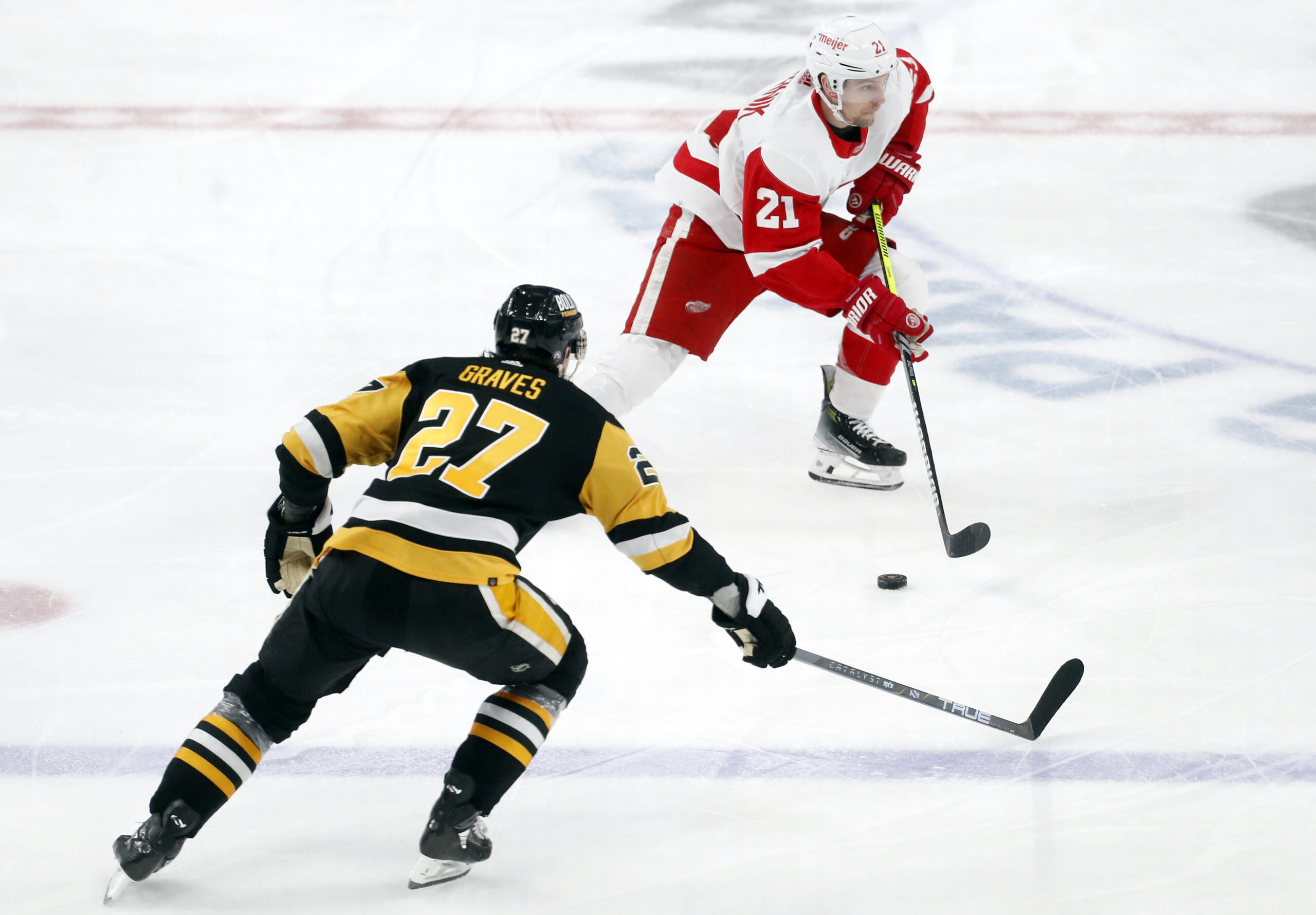The Penguins aim to compete with an aging core, making every move crucial. This article covers the three worst moves by GM Kyle Dubas so far. Kyle Dubas took over as General Manager of the Pittsburgh Penguins in 2023. Following a disappointing end to his time with the Toronto Maple Leafs, Dubas arrived with high expectations. While his tenure has seen some positive changes, a few of his decisions have raised eyebrows and drawn criticism. As the Penguin’s core group of forwards are nearing the end of their career, every mistake counts. As Dubas came into a roster needing upheaval to try to compete for the playoffs, it is natural that some mistakes were made. This article explores the three worst moves made by Dubas during his time with the Penguins.
Three Worst Moves Made by Kyle Dubas
#3. Reilly Smith Trade (Acquired from Vegas on June 28th 2023)
The trade to acquire Reilly Smith from the Vegas Golden Knights was initially seen as a positive one. It was seen as a strategic move to bolster the teams depth. Dubas traded a 2024 third-round draft pick to secure Smith, who was expected to bring his experience and scoring ability to the team’s top-six.
The Penguins have acquired Reilly Smith from the Golden Knights in exchange for a 2024 third-round pick. ? pic.twitter.com/FyFJqtP6vW
— Sportsnet (@Sportsnet) June 28, 2023
Impact
Initially, Smith showed promise. He scored six goals in the first 10 games of the season. However, his performance quickly declined, and he struggled to maintain consistency throughout the season. Smith’s inconsistent performance resulted in him being moved down the lineup. The lack of sustained offensive production made the trade appear less beneficial than anticipated. The Penguins had tied up valuable cap space for a player who failed to meet expectations, affecting their overall roster-building capabilities.
Trade Analysis
Smith’s acquisition was meant to replace expiring free agent Jason Zucker and provide a reliable scoring presence. The newly crowned Cup Champion Golden Knights were experiencing a cap crunch and needed to get rid of salary. As such, Dubas acquired Smith for a relative discount. Acquired for just a third round pick, Smith’s cost was low. However, his contract was for 2 years at $5 million per year. During a time where the cap was flat, this was a significant amount of salary to tie up into a forward. Due to Smith’s struggles with the Penguins, his contract become too large to hold onto. This led to him being traded just about a year later. Initially, Smith showed promise, scoring six goals in the first 10 games. However, his performance quickly declined, and he struggled to maintain consistency throughout the season.
#2. Tristan Jarry Contract (5 years, $5.375 million AAV on July 1st, 2023)
Re-signing Tristan Jarry to a five-year contract with an average annual value of $5.375 million was a significant investment in the team’s goaltending future. Dubas bet on Jarry being the long-term solution in the net despite his inconsistent performance history. A former all-star, Jarry had a bit of a track record of being incredible in games earlier in the season before faltering when the pressure increased. As such, this move was seen as a risk at the time of signing.
JARRY = STAYING PIT ?
The @penguins have inked Tristan Jarry to a five-year contract.
Watch live coverage of #NHLFreeAgency on @nhlnetwork TODAY from 12p-5p ET and follow along on @NHLdotcom! pic.twitter.com/7y4qmMYNQB
— NHL (@NHL) July 1, 2023
Impact
Jarry’s performance since signing the contract has been erratic. He’s shown flashes of brilliance and then overshadowed them with bouts of inconsistency and injuries. This unpredictability has made it difficult for the Penguins to rely on him as their primary goaltender. The sizable cap hit from Jarry’s contract limits the team’s flexibility in addressing other needs, potentially hindering their overall competitiveness. The team made a push for the playoffs late in the 2023-2024 season, where Jarry saw his starting role stolen by Alex Nedeljkovic.
Contract Analysis
The decision to lock Jarry into a long-term, high-value contract was risky given his history of inconsistent performances and injury issues. Jarry is being paid to play as the team’s starting goaltender and may lose his spot to back-up Nedeljkovic once again when the pressure increases. The high AAV of Jarry’s contract along with his uncertainty in net places a burden on the team’s cap situation. Insider Elliott Friedman has reported as recently as June of this year that the Penguins are looking at potential ways to move Jarry’s contract.
#1. Ryan Graves Contract (6 years, $4.5 million AAV on July 1st, 2023)
Signing defenceman Ryan Graves to a six-year contract with an average annual value of $4.5 million has been Kyle Dubas’ most criticized move as Penguins GM. Graves was brought in to provide a defensive stalwart presence on the blue line. The expectation with his acquisition was to be a partner beside Kris Letang. Graves’ importance rose when Erik Karlsson was acquired. This meant Graves and Marcus Pettersson would both have to step up to perform well with Letang and Karlsson. However, his performance has not lived up to the contract’s expectations.
Ryan Graves is a Pittsburgh Penguin after signing a 6-year, $27M contract. ? pic.twitter.com/IVvtFU2yZy
— Sportsnet (@Sportsnet) July 1, 2023
Impact
The long-term commitment to Graves at a substantial cap hit was intended to strengthen the Penguins’ left defensive side. However, Graves struggled significantly in his first season, failing to meet the defensive expectations set by his previous performances with Colorado and New Jersey. Offensively, Graves’ points per game fell from a range of .35 to .40 with his previous team. On the Penguins, he averaged a meagre .20 points per game playing alongside offensive juggernauts like Letang and Karlsson. Graves also left a lot to be desired defensively and found himself playing sheltered third-pairing minutes at times by the end of the season.
Contract Analysis
This is the more interesting part of the worst moves Kyle Dubas made for the Penguins. Graves’ inability to provide the expected defensive stability has been a significant detriment to the team’s overall defensive performance. On a team with little margin for error, this proved to be very costly. At $4.5 million for six seasons, Graves’ pay requires him to be a valuable impact player on the team. The long-term nature of his contract, combined with his high AAV, restricts the Penguins’ ability to make other critical roster moves, making it the most detrimental move under Dubas’ tenure.
Conclusion
This Kyle Dubas Penguins roster has been marked by bold moves. While these moves can turn out genius, others turn out costly. On a team with little room for error, the acquisitions of Reilly Smith and Ryan Graves, along with the long-term commitment to Tristan Jarry, stand out as his worst decisions. These moves have raised concerns about the teams cap management. The current roster inflexibility is hampering the Penguins’ ability to remain competitive in the near future. As Dubas continues to shape the team, these decisions are important to learn from and reflect to ensure the team is able to move closer to its goals.
Main Photo: Charles LeClaire-USA TODAY Sports






